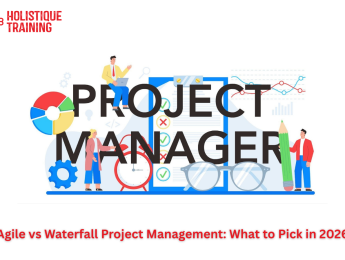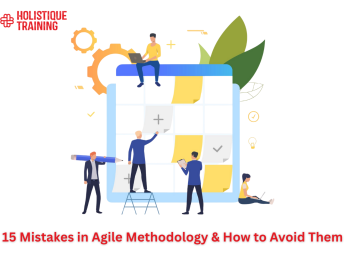- Table of Contents
- Introduction
- The State of UK eCommerce in 2025
- Core Digital & Technical Skills in Demand
- Performance Marketing: PPC, Paid Social, and Retail Media
- SEO & Content for eCommerce
- Conversion Rate Optimisation (CRO)
- Analytics, Attribution & Data Literacy
- Lifecycle Marketing: Email, SMS & CRM
- Platform & Technology Skills
- Shopify, BigCommerce & Headless Commerce
- Product Information Management (PIM) & Feed Optimisation
- Web Performance & Core Web Vitals
- Marketplace Operations
- Operational & Customer Experience Skills
- Supply Chain & Fulfilment Management
- Payments, Checkout Optimisation & Fraud Prevention
- Customer Service & Community Management
- Returns & Sustainability Practices
- Compliance, Trust & Sustainability Skills
- Data Privacy & UK GDPR
- Accessibility & Inclusive Design
- Sustainability & Ethical Commerce
- The Role of AI & Automation in eCommerce Skills
- AI in Marketing
- AI in Operations
- No-Code Automation Tools
- Human Oversight & Governance
- Cross-Functional & “Power” Skills
- Commercial Acumen & P&L Understanding
- Project Management & Agile Collaboration
- Data Storytelling & Communication
- Copywriting & Persuasive Messaging
- Emerging Roles & Career Pathways in UK eCommerce
- Growth Manager / Performance Marketing Lead
- Marketplace Manager (Amazon, TikTok Shop)
- CRO & Experimentation Manager
- CRM / Lifecycle Manager
- eCommerce Product Owner
- Upskilling & Certifications for 2025
- Most Valuable Certifications
- Short Courses
- Continuous Learning
- 90-Day Roadmap
- Conclusion
Introduction
The United Kingdom’s eCommerce sector has entered 2025 as one of the fastest-growing segments of the economy, shaped by technological innovation, shifting consumer expectations, and the expansion of digital-first retail models. Online shopping is no longer an alternative to brick-and-mortar—it has become a central pillar of the retail industry. According to industry reports, the UK remains the third-largest eCommerce market in the world, after China and the United States, and its digital retail revenue continues to expand year on year. This growth brings with it new opportunities, but also an urgent demand for skilled professionals capable of navigating the increasingly complex digital landscape.
The evolution of eCommerce has created a profound talent gap. Businesses are not only looking for marketers or web developers but also for multi-skilled individuals who can combine data literacy, technical expertise, and consumer insight. As artificial intelligence, automation, and omnichannel integration reshape the sector, having the right skills is no longer a luxury but a strategic necessity. Employers are competing for professionals who can ensure that every digital interaction—from a search ad to a product return—delivers measurable value.
In this article, we will discuss the skills that are most in demand for eCommerce professionals in the UK in 2025. We will explore the state of the industry, the specific digital and technical competencies employers prioritise, platform and technology skills that underpin success, and operational expertise required to manage fulfilment, payments, and customer experiences. We will also address compliance and trust, the role of artificial intelligence, and the importance of cross-functional “power skills” such as project management and commercial acumen. Finally, we will highlight emerging roles, upskilling opportunities, and the certifications that can help professionals stay ahead in a competitive marketplace.
The State of UK eCommerce in 2025
The UK’s eCommerce sector in 2025 is defined by a combination of innovation and rising consumer expectations. Social commerce has exploded, with platforms like TikTok Shop, Instagram Shopping, and YouTube Commerce becoming mainstream sales channels. Artificial intelligence now powers product recommendations, customer service chatbots, and personalised campaigns, making AI literacy a non-negotiable skill. Omnichannel retail has also matured; shoppers expect to browse, purchase, and return seamlessly across online and physical environments.
Yet, this growth comes with unique UK-specific challenges. Post-Brexit logistics have complicated supply chain flows, increasing costs and creating new compliance hurdles for businesses trading across borders. Sustainability is another pressing issue. Consumers are increasingly aware of environmental impacts and expect brands to commit to carbon-neutral delivery, recyclable packaging, and transparent sourcing. At the same time, regulations have become stricter. From UK GDPR enforcement to advertising standards around influencer marketing, compliance is now integral to eCommerce success.
The BBC reported in late 2024 that UK online retail sales reached over £120 billion, a 12% increase compared to the previous year, largely driven by social commerce and mobile-first shopping. This statistic highlights both the opportunities and the challenges for businesses. With rising revenue comes greater competition, and companies must invest in talent capable of sustaining growth while meeting consumer and regulatory demands.
These dynamics are forcing businesses to re-evaluate their hiring priorities. Employers now look beyond traditional marketing skills and seek individuals who can combine creativity with analytics, master new technologies, and manage operational complexity. The eCommerce workforce of 2025 must be versatile, adaptable, and capable of integrating technical expertise with commercial thinking.
Core Digital & Technical Skills in Demand
Performance Marketing: PPC, Paid Social, and Retail Media
Performance marketing remains at the heart of digital retail. In 2025, businesses are increasingly reliant on pay-per-click advertising, social media campaigns, and retail media platforms like Amazon Ads to drive revenue. Employers seek professionals who not only understand keyword bidding and audience segmentation but can also design campaigns aligned with profitability metrics such as return on ad spend (ROAS) and customer lifetime value (CLV). Retail media is particularly important in the UK market, as large retailers develop their own ad platforms, creating new opportunities for growth.
SEO & Content for eCommerce
Search engine optimisation continues to be critical, especially in a competitive marketplace where organic visibility can dramatically reduce acquisition costs. Modern eCommerce SEO goes beyond keywords to include structured data, product schema, and site architecture optimised for search crawlers. Content also plays a pivotal role: brands are investing in high-quality product descriptions, blog content, and buying guides that drive traffic and conversions. Professionals must balance creativity with technical SEO knowledge, ensuring content meets user needs while adhering to search engine algorithms.
Conversion Rate Optimisation (CRO)
Attracting visitors is only half the battle; converting them into paying customers is where real value is created. CRO involves analysing user behaviour, conducting A/B tests, and improving site layouts to maximise sales. In 2025, UK companies are seeking experts who can design evidence-based experiments and translate results into actionable insights. Skills in user experience design, psychology of consumer behaviour, and analytics tools like Hotjar or Optimizely are increasingly in demand.
Analytics, Attribution & Data Literacy
With the sunset of Universal Analytics and the transition to GA4, data literacy has become essential. Employers require professionals who can manage event-based tracking, interpret attribution models, and build dashboards using tools such as Looker or Power BI. SQL knowledge is often considered a bonus, enabling deeper analysis of customer data. Data storytelling—the ability to communicate insights clearly to decision-makers—is equally important, ensuring analytics drive strategy rather than sit unused in reports.
Lifecycle Marketing: Email, SMS & CRM
Customer retention is now as important as acquisition. Lifecycle marketing encompasses email campaigns, SMS reminders, and CRM-driven personalisation. Professionals must be able to design automated flows, such as cart abandonment reminders and re-engagement campaigns, while also monitoring metrics like open rates, deliverability, and revenue per subscriber. Tools such as Klaviyo, HubSpot, and Salesforce Marketing Cloud are widely used, and proficiency in these platforms is highly valued.
Platform & Technology Skills
The platforms that power eCommerce are evolving rapidly. Mastery of these technologies is now a fundamental requirement.
Shopify, BigCommerce & Headless Commerce
Shopify and BigCommerce remain the most widely used platforms in the UK, thanks to their flexibility and scalability. However, the rise of headless commerce—where the front-end is decoupled from the back-end—demands technical expertise. Employers look for professionals who can customise storefronts, integrate APIs, and optimise the user experience across devices.
Product Information Management (PIM) & Feed Optimisation
Product data is the backbone of eCommerce. PIM systems ensure consistency across channels, while feed optimisation tools help retailers adapt product listings to platforms like Google Shopping and TikTok Shop. Professionals with expertise in managing large-scale product catalogues, ensuring accuracy, and optimising for visibility are highly sought after.
Web Performance & Core Web Vitals
Site speed and user experience directly affect conversion rates. Core Web Vitals—Google’s benchmarks for loading, interactivity, and visual stability—are critical in 2025. Employers want staff who can identify performance bottlenecks, optimise images, and collaborate with developers to maintain fast, accessible websites.
Marketplace Operations
Marketplaces such as Amazon, eBay, and TikTok Shop continue to dominate UK eCommerce. Managing these platforms requires skills in listing optimisation, review management, and paid media campaigns. A 2024 review from Deloitte noted that UK SMEs using marketplace optimisation strategies grew their online sales by 25% compared to those relying solely on their own websites, underlining the importance of marketplace expertise.
Operational & Customer Experience Skills
Operational excellence is essential for sustainable eCommerce growth.
Supply Chain & Fulfilment Management
As delivery speed remains a competitive differentiator, businesses require professionals skilled in demand forecasting, warehouse management, and last-mile logistics. Brexit-related challenges have also increased the importance of supply chain expertise.
Payments, Checkout Optimisation & Fraud Prevention
The checkout process is where many sales are lost. Employers are seeking specialists who can implement alternative payment methods, ensure smooth mobile checkouts, and reduce cart abandonment. Fraud prevention—through risk scoring and secure authentication—is equally vital.
Customer Service & Community Management
Customer service is no longer a back-office function; it is a revenue driver. Skills in omnichannel support, chatbot integration, and community management can build loyalty and reduce churn.
Returns & Sustainability Practices
Returns are a significant cost for UK retailers. Professionals who can design efficient return systems and promote sustainable practices, such as recyclable packaging, are in high demand.
Skill Area | Importance | Example Impact |
Supply Chain | High | Faster delivery, reduced costs |
Checkout & Payments | Critical | Lower cart abandonment |
Customer Service | High | Higher loyalty & retention |
Returns & Sustainability | Growing | Reduced costs, improved brand trust |
Compliance, Trust & Sustainability Skills
Data Privacy & UK GDPR
Data protection is a legal requirement. Skills in consent management, secure data handling, and compliance with UK GDPR are non-negotiable.
Accessibility & Inclusive Design
WCAG 2.2 standards require websites to be usable by all, including people with disabilities. Employers value professionals who can design accessible websites, from colour contrast to screen reader compatibility.
Sustainability & Ethical Commerce
Consumers demand ethical sourcing and environmental responsibility. Skills in sustainability reporting, packaging design, and supply chain transparency are increasingly prioritised by UK businesses.
The Role of AI & Automation in eCommerce Skills
Artificial intelligence is transforming eCommerce roles.
AI in Marketing
AI now powers creative generation, audience targeting, and personalisation. Professionals must understand how to use AI tools effectively while maintaining brand integrity.
AI in Operations
From demand forecasting to fraud detection, AI improves efficiency in operations. Employers want individuals who can manage AI-driven systems and interpret their outputs.
No-Code Automation Tools
Platforms like Zapier and Make are enabling non-technical staff to automate repetitive tasks. Mastery of these tools allows for faster workflows and reduced costs.
Human Oversight & Governance
Despite AI’s power, human oversight is essential to ensure ethical practices, compliance, and strategic alignment. Skills in governance frameworks and bias detection are critical.
Cross-Functional & “Power” Skills
While technical expertise in digital marketing, analytics, or platform management is essential, it is often cross-functional skills—sometimes called “power skills”—that determine long-term success in eCommerce. These skills allow professionals to work across teams, bridge the gap between technical and commercial priorities, and deliver value that extends beyond their immediate role.
Commercial Acumen & P&L Understanding
eCommerce is ultimately about profitability. A strong grasp of commercial fundamentals such as profit and loss (P&L) statements, gross margins, and customer lifetime value (CLV) allows professionals to connect day-to-day actions with wider business outcomes. For instance, a marketer running paid social campaigns must know not only how to optimise for clicks but also how acquisition costs impact contribution margins once logistics and returns are factored in. Similarly, product managers who understand margins can prioritise features that reduce costs or increase retention. Commercial acumen transforms employees from executors into strategic partners who can influence growth.
Project Management & Agile Collaboration
Modern eCommerce involves multiple stakeholders: marketing teams, developers, logistics providers, customer service staff, and external agencies. Without effective coordination, projects stall or fail. Agile methodologies—such as Scrum or Kanban—help teams work in sprints, adapt to changing requirements, and deliver incremental value. Skills in project scoping, stakeholder communication, and backlog prioritisation are critical. For example, when rolling out a new headless commerce platform, a project manager must ensure that technical deployments align with marketing calendars and customer experience goals. Employers value professionals who can manage complexity without losing focus on deadlines and deliverables.
Data Storytelling & Communication
With so much data available—ranging from web analytics to customer reviews—the challenge is no longer collection but interpretation. Data storytelling is the ability to transform raw figures into insights that influence decision-making. A dashboard showing declining conversion rates is only useful if a professional can explain why it matters, what the likely causes are, and how it should shape the next action. Communication skills ensure that technical insights resonate with senior executives, creative teams, and non-specialists. This bridge between data and narrative is increasingly recognised as a competitive advantage.
Copywriting & Persuasive Messaging
In an industry where consumers are constantly exposed to competing offers, persuasive messaging is vital. Copywriting for eCommerce extends beyond catchy product descriptions; it includes microcopy on checkout buttons, email subject lines, and social media captions. Effective copy combines creativity with commercial intent, encouraging customers to act while reinforcing brand values. Professionals who can write with clarity, empathy, and persuasion directly contribute to higher conversion rates and stronger brand loyalty. In 2025, when AI tools can generate text, the human skill of nuanced, authentic communication remains irreplaceable.
Together, these cross-functional skills enable professionals to operate at the intersection of creativity, technology, and business strategy—qualities that define leadership in eCommerce today.
Emerging Roles & Career Pathways in UK eCommerce
The rapid evolution of eCommerce has reshaped job roles, creating new career pathways that reflect the sector’s complexity. Employers are no longer satisfied with narrow specialists; they seek professionals capable of blending technical expertise with strategic oversight. Several roles are particularly in demand in the UK market in 2025.
Growth Manager / Performance Marketing Lead
This role goes beyond campaign execution. A Growth Manager or Performance Marketing Lead is responsible for scaling customer acquisition channels, optimising ad spend across platforms, and aligning marketing with business objectives. They must manage budgets strategically, focusing not only on traffic but also on profitability. In practice, this means experimenting with retail media, leveraging AI-driven bidding strategies, and reporting on metrics such as blended customer acquisition cost (CAC) and lifetime value.
Marketplace Manager (Amazon, TikTok Shop)
Marketplaces are a major revenue driver in the UK. A Marketplace Manager oversees product listings, ensures compliance with platform policies, and runs advertising campaigns on platforms like Amazon Ads or TikTok Shop. They also monitor reviews, optimise product titles and descriptions, and analyse sales performance. With TikTok’s rise as a commerce platform, this role demands a unique blend of operational rigour and social media savvy.
CRO & Experimentation Manager
Conversion Rate Optimisation (CRO) has become a standalone career path. A CRO & Experimentation Manager designs and runs experiments to improve on-site performance. Their responsibilities include building A/B test roadmaps, analysing results, and recommending design or copy changes. By focusing on incremental improvements, this role directly increases revenue without additional acquisition costs, making it highly valuable for UK retailers under pressure to boost margins.
CRM / Lifecycle Manager
Retention is as important as acquisition, and CRM/Lifecycle Managers specialise in maximising customer lifetime value. They design automated workflows for welcome emails, cart abandonment reminders, loyalty programmes, and win-back campaigns. Their role requires both creative messaging and data analysis, ensuring communications are personalised, compliant, and profitable.
eCommerce Product Owner
As platforms grow more complex, the need for eCommerce Product Owners has risen sharply. They act as the bridge between technical teams and commercial stakeholders, defining priorities, writing user stories, and ensuring platform development aligns with business goals. For example, they might oversee the rollout of a new checkout process, ensuring it improves customer experience while reducing cart abandonment.
These emerging roles highlight the breadth of opportunities in eCommerce careers. They also show that success is not confined to one skill set but depends on the ability to integrate marketing, technology, operations, and customer experience.
Upskilling & Certifications for 2025
In a competitive market, certifications and structured learning provide credibility and ensure professionals remain relevant. In 2025, employers place high value on candidates who demonstrate both formal qualifications and practical experience.
Most Valuable Certifications
Google Ads certifications remain foundational for performance marketers, while Meta Blueprint certifications signal expertise in paid social. Amazon Ads certification has grown in importance as retail media accelerates, and Shopify certifications provide credibility for those working on platform development. These credentials show employers that candidates have mastered essential tools and frameworks.
Short Courses
Alongside certifications, short courses offer targeted skill development. Training in Google Analytics 4 (GA4), CRO methodologies, user experience (UX) design, and GDPR compliance are particularly valuable in the UK market. These courses often include practical projects that can be showcased in portfolios.
Continuous Learning
eCommerce evolves rapidly, with AI, data privacy, and consumer behaviour trends shifting constantly. Continuous learning is no longer optional. Professionals are expected to engage with webinars, industry conferences, and peer communities to keep up with developments. This adaptability ensures they remain competitive even as job roles change.
90-Day Roadmap
A structured plan can make upskilling more achievable.
- Month 1: Audit your current skills and complete an analytics or GA4 training course. This builds the foundation for data-driven decision-making.
- Month 2: Apply new knowledge by building a project portfolio. For example, design and run a small A/B test or optimise a product feed.
- Month 3: Gain a recognised certification, such as Shopify or Amazon Ads, and share insights from the process publicly on LinkedIn or within professional communities. This not only demonstrates expertise but also builds a professional brand.
By combining certifications, practical projects, and continuous learning, professionals can position themselves as future-ready leaders in the UK eCommerce market.
Conclusion
The UK eCommerce sector in 2025 is defined by rapid innovation, rising consumer expectations, and increasing complexity. Success depends on a blend of technical expertise, operational excellence, compliance awareness, and cross-functional power skills. From performance marketing and SEO to AI governance and customer service, professionals must master a wide array of competencies.
Adaptability and continuous learning have become the ultimate meta-skills. The most successful eCommerce professionals are those who not only acquire new skills but also apply them strategically, balancing profitability with customer satisfaction and sustainability.
For individuals seeking a career in this sector, now is the time to evaluate skill gaps and invest in training. For employers, attracting and retaining versatile talent is key to staying competitive. In a landscape where consumer preferences, technology, and regulations evolve constantly, the ability to learn, adapt, and innovate will define the leaders of tomorrow’s eCommerce industry.
























